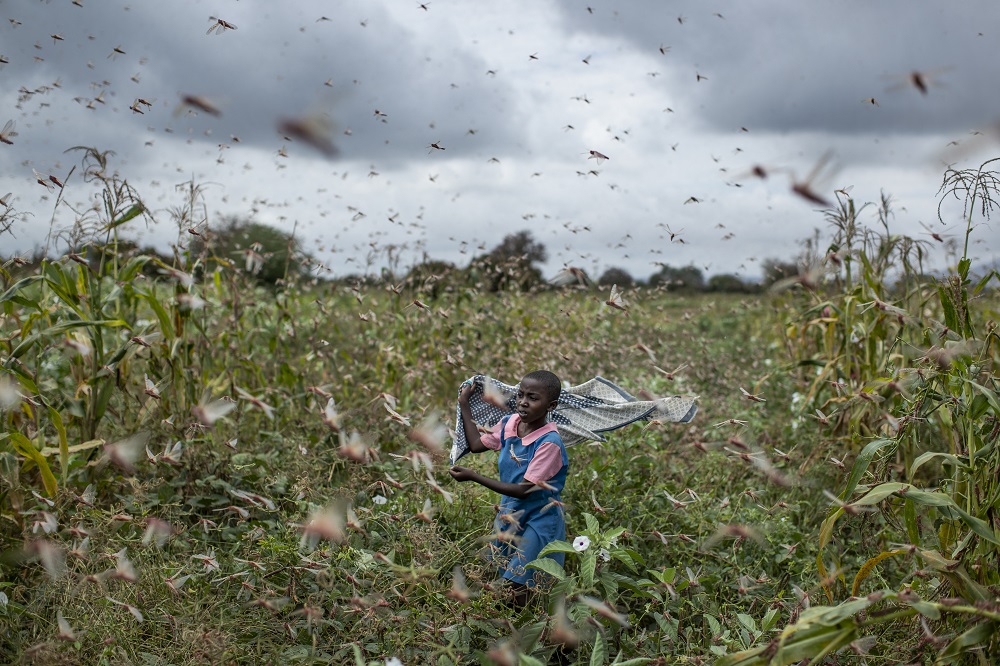 A girl tries to drive away locusts from her family's farm in Katitika village, Kitui county, Kenya on Jan 24. (Photo: AP)
A girl tries to drive away locusts from her family's farm in Katitika village, Kitui county, Kenya on Jan 24. (Photo: AP)
NAIROBI, April 9 (Xinhua) -- The Food and Agriculture Organization of the United Nations (FAO) said Thursday it will continue its efforts to combat desert locust upsurge in East Africa despite restrictions on the movement of personnel and equipment resulting from the COVID-19 pandemic.
However, the biggest challenge for the moment is the supply of pesticides because of global air freight reduction.
Cyril Ferrand, FAO's Resilience Team Leader for East Africa, said about 20 million people in Ethiopia, Kenya, Somalia, South Sudan, Uganda and Tanzania are already experiencing acute food insecurity, and a further 15 million in Yemen, which is also being affected by the pest.
"There is no significant slowdown because all the affected countries working with FAO consider Desert Locusts a national priority," Ferrand said in a statement.
According to the FAO, restrictions on the movement of personnel and equipment imposed by COVID-19 have created challenges but FAO is continuing to work with governments, farmers and agricultural producers to contain the outbreak.
"While lockdown is becoming a reality, people engaged in the fight against the upsurge are still allowed to conduct surveillance, and air and ground control operations," Ferrand said.
He said FAO is augmenting national efforts by providing support for surveillance as well as aerial and ground spraying being conducted in 10 affected countries.
So far more than 240,000 hectares have been treated with chemical pesticides or biopesticides across the region and 740 people have been trained up to conduct ground locust control operations.
But the UN food agency said COVID-19 has had an impact on the supply of motorized sprayers and pesticides.
"The biggest challenge we are facing at the moment is the supply of pesticides and we have delays because global air freight has been reduced significantly," Ferrand said.
FAO said the desert locust upsurge continues to remain alarming, particularly in Ethiopia, Kenya and Somalia, where it poses an unprecedented threat to food security and livelihoods.
"Our absolute priority is to prevent a breakdown in pesticide stocks in each country. That would be dramatic for rural populations whose livelihoods and food security depend on the success of our control campaign," said Ferrand.
According to FAO, widespread rainfall in March is expected to produce a dramatic increase in locust numbers in East Africa over the coming months, with new swarms expected to move from Kenya into South Sudan and Uganda.


